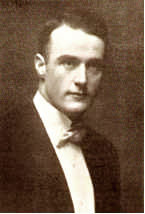NBA Economics and the Next Collective Bargaining Agreement
 The Lebron James feeding frenzy notwithstanding, these are troubled times for the National Basketball Association. The league is already losing hundreds of millions of dollars per year, and the continued sluggishness of the natonal economy does not bode well for an imminent turnaround in the league’s fortunes. Perhaps some Greek-style austerity measures are in order. The league’s collective bargaining agreement with the players’ union limits its flexibility, but the current CBA expires after next season, setting the stage for a potentially bitter confrontation over the division of a shrinking pie.
The Lebron James feeding frenzy notwithstanding, these are troubled times for the National Basketball Association. The league is already losing hundreds of millions of dollars per year, and the continued sluggishness of the natonal economy does not bode well for an imminent turnaround in the league’s fortunes. Perhaps some Greek-style austerity measures are in order. The league’s collective bargaining agreement with the players’ union limits its flexibility, but the current CBA expires after next season, setting the stage for a potentially bitter confrontation over the division of a shrinking pie.
For anyone in need of a scorecard, Matt Parlow provides an engaging review of NBA economics and preview of the coming labor negotiations in a new paper on SSRN. Entitled “The NBA and the Great Recession: Implications for the Upcoming Collective Bargaining Agreement Renegotiation,” the paper will be published in the DePaul Journal of Sports Law and Contemporary Problems. The abstract appears after the jump.
Marquette’s Original Law School Curriculum
 The students who enter Marquette University Law School this year will take a first-year course load consisting of one-semester courses in Torts, Contracts, Civil Procedure, Property, Criminal Law, and Constitutional Law, and a year-long course in Legal Research and Writing. After the first year, the curriculum is largely elective, although the diploma privilege makes Evidence, Professional Responsibility, and Trusts and Estates upper-level required courses.
The students who enter Marquette University Law School this year will take a first-year course load consisting of one-semester courses in Torts, Contracts, Civil Procedure, Property, Criminal Law, and Constitutional Law, and a year-long course in Legal Research and Writing. After the first year, the curriculum is largely elective, although the diploma privilege makes Evidence, Professional Responsibility, and Trusts and Estates upper-level required courses.
The students who enrolled in the inaugural class at the new day division of the Marquette Law School in the fall of 1908 faced a much different situation. All classes were required, and there was no flexibility as to when a particular class could be taken. In addition to the regular classes, law students were also required to attend special lectures by prominent lawyers and judges on topics outside the regular curriculum, and there was a practice court where students learned the nuts and bolts of civil and criminal law practice.
Marquette Law School has a long tradition of tinkering with its curriculum and that was true even in 1908 and 1909. However, from what can be extracted from the catalogs for 1908-1912, the following appears to have been the original day division curriculum.
| Fall—Year 1 Common Law Pleading (1) Contracts (2) Torts (2) Real Property (1) Criminal Law & Procedure (1) Agency (2) Domestics Relations (2) |
Spring—Year 1 Common Law Pleading (1) Contracts (3) Torts (2) Real Property (1) Criminal Law & Procedure (1) Partnership (2) Bailments & Carriers (2) |
|
Fall—Year 2 Real Property (2) Private Corporations (2) Equity Jurisprudence (2) Code Pleading & Practice (2) Personal Property & Sales (2) Negotiable Paper (2) |
Spring—Year 2 Real Property (2) Private Corporations (2) Equity Jurisprudence (2) Code Pleading & Practice (1) Evidence (2) Municipal Corporations (2) Courts & Jurisdiction (1) |
|
Fall—Year 3 Equity Jurisprudence & Trusts (2) Constitutional Law (1) Real Property (2) Wills (2) Evidence (2) Municipal Corporations/Utilities (2) Insurance (1) Surety and Guaranty (1) |
Spring—Year 3 Equity Jurisprudence & Trusts (2) Constitutional Law (1) Federal Courts, Admiralty, Bankruptcy, Patents, Trademark (2) Probate Law & Practice (2) Equity Pleading (2) Extraordinary Legal Remedies (1) Damages (1) Taxation & Public Revenues (1) |
For more information on the experiences of the first law students, see the earlier post on Joseph Tierney L’11.

